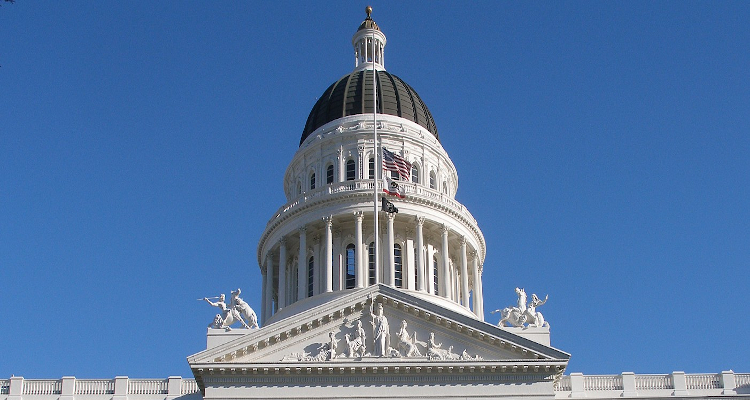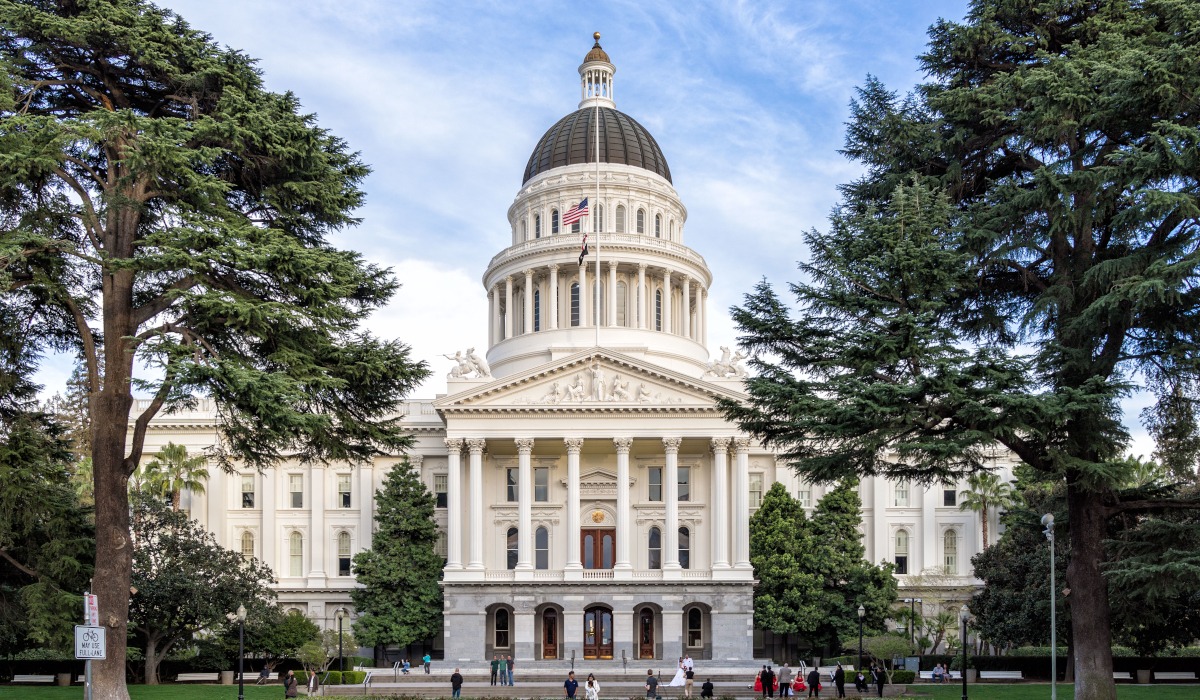
The California State Capitol in Sacramento. Photo Credit: Coolcaesar
The major labels – Universal Music Group, Sony Music Entertainment, and Warner Music Group – are officially pushing for the passage of a bill that would attempt to insulate rappers in certain situations from criminal liability stemming from the lyrics of their songs.
The Big Three labels just recently expressed their support for the measure (via the RIAA) in a letter to Toni Atkins, the California Senate president pro tempore, with other members of the Senate having been CC’d at the message’s conclusion.
For reference, the New York Senate in May passed a law (in a 38-23 vote) that would prohibit rappers’ lyrics from being used as evidence during criminal trials; the legislation must still make it through the New York Assembly before heading to the governor’s desk.
But the similar measure that’s being considered by California lawmakers, AB 2799, would specifically add a section to the Evidence Code. And despite a focus on rap lyrics (and even the wider music space) when describing the bill, the proposal as written would extend to any “criminal proceeding where a party seeks to admit as evidence a form of creative expression.”
In brief, the court would be required to consider that “the probative value of such [creative] expression for its literal truth or as a truthful narrative is minimal unless that expression is created near in time to the charged crime or crimes, bears a sufficient level of similarity to the charged crime or crimes, or includes factual detail not otherwise publicly available.”
Additionally, the court would also have to allow and factor for relevant “credible testimony on the genre of creative expression as to the social or cultural context, rules, conventions, and artistic techniques of the expression” – i.e. the actual meaning of song lyrics in rap – and “experimental or social science research demonstrating that the introduction of a particular type of expression explicitly or implicitly introduces racial bias into the proceedings.”
Now, as mentioned at the outset, the major labels are encouraging California legislators to vote in favor of AB 2799.
“The Recording Industry Association of America (RIAA)* offers its support for AB 2799, legislation that will limit the admissibility of creative expression against a defendant in a criminal proceeding,” begins a brief letter from RIAA chairman and CEO Mitch Glazier to the aforementioned lawmakers.
“Rooted in imagination, creative expression’s greatest capacity is to lift us out of the real world and to present us with the unexpected, the unlikely, and the unthinkable,” the message proceeds. “Hyperbole and fantastical imagery are customary, and often necessary, elements of that creative expression. Bob Marley and Eric Clapton understood this when they sang about shooting the sheriff. Johnny Cash understood it when he claimed to have ‘shot a man in Reno just to watch him die.’ The Beatles weren’t ones to truly subscribe to the notion that ‘Happiness is a Warm Gun.’ And no one truly believed that Freddie Mercury ‘just killed a man’ in Queen’s ‘Bohemian Rhapsody.’
“Yet, when rap and hip hop artists adhere to this time-honored tradition of make-believe, their lyrics are too often – and unfairly – taken literally, stripped of the poetic license afforded other genres. While such mischaracterization may be uneventful in everyday music consumption, its application in criminal proceedings can skew the truth and destroy artists’ lives.
“AB 2799 seeks to address this issue and we respectfully request your support,” the document finishes.

